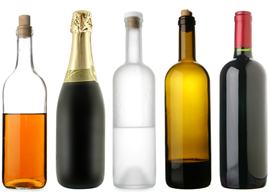
June 23, 2017

Source: Bigstock
Drinking was great fun when we were young. There were few things that I enjoyed more. Like Terry Lennox in Raymond Chandler’s most booze-sodden”and that’s saying something”novel, The Long Goodbye, I loved to be in a bar at opening time when everything was still fresh and full of promise. But that was a long time ago. A good many of the friends of my youth are dead, killed by booze, far too young. I came close to going that way myself but stopped short, giving up alcohol more than twenty years ago. Though there are occasional days when I think a beer would be fine, or feel a stab of regret as I pass the wine bottle round the table without filling my own glass, I known that one beer or glass wouldn”t be enough, so it would be absurd to feel deprived.
Many manage to stop when they are told that addiction to alcohol or drugs is an illness, that they are not bad people gone wrong, but ill people seeking recovery. This is a persuasive argument whether it’s true or not. Some skeptically reply that it’s a strange sort of illness that you can cure simply by not lifting a glass. Though I accept that thinking of alcoholism as an illness rather than simply as something that makes you ill the following morning may be an effective way of getting you to kick the destructive habit, I don”t now find the illness theory compelling. That said, there is an evident difference between the heavy drinker and the alcoholic. The former finds it easier to say no to the next drink. For the latter there are times”too many times”when the next drink is imperative. At that moment nothing else matters, or at least there is nothing more important.
There’s another attraction to the illness theory. It frees, or may free, you from guilt. You”re in the grips of an addiction; therefore, bad behavior isn”t your fault. You can”t be blamed for it. You are not responsible for what you do or say. This is comforting, but, not surprisingly, those on the receiving end of your bad behavior or unkind, even brutal, words may be less convinced, regarding it as a cop-out. Nevertheless, even if guilt resurfaces when you have temporarily sobered up, it is easier to live with yourself if you come to believe that you are ill, not bad, not even weak-willed.
The question of will, or willpower, is a vexed one. “You know you can”t control your drinking; so why are you so weak-willed?” AA insists that you can”t escape from addiction by an exercise of the will. Instead you have to surrender your will “to a Higher Power.” Undoubtedly this surrender works for some”for those who can believe in the existence of such a power. For those who can”t, it may be a meaningless piece of advice.
Where AA undoubtedly has it right is in the insistence that it’s the first drink that matters”or, more precisely, not taking that first drink. If you don”t take it, then you can”t get drunk; but once you have taken it, you have lost, or are in imminent danger of losing, control. Common sense and experience back this up. Yet it’s equally true that when the possibility of that first drink presents itself enticingly to you, with a voice in your ear saying, “One will be okay, I”ll stop at one,” it’s an exercise of the will that allows you to say no.
I myself was once all but persuaded that alcoholism was indeed an illness and, being all but persuaded, found it possible to reconcile myself to the idea that I couldn”t drink with impunity. Perhaps it was easier to believe this because I had long ago moved from being a heavy daily drinker to being someone who had”even enjoyed”quite long periods, passing months or even a year, of not drinking before falling very heavily off the wagon and embarking on a binge that lasted for days, even weeks, a binge in which I was almost completely out of control even while going through the motions of being an apparently sane person who had just had one or two too many. I had toyed with AA several times, but it had never quite taken. The one side of the AA program that seemed to work was its offer of mutual support, and with that the evidence that people who had been in every bit as bad way as I was had emerged”they would have said “recovered””to lead normal and contented lives.